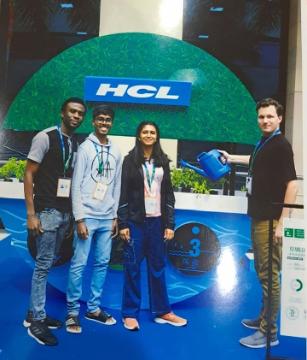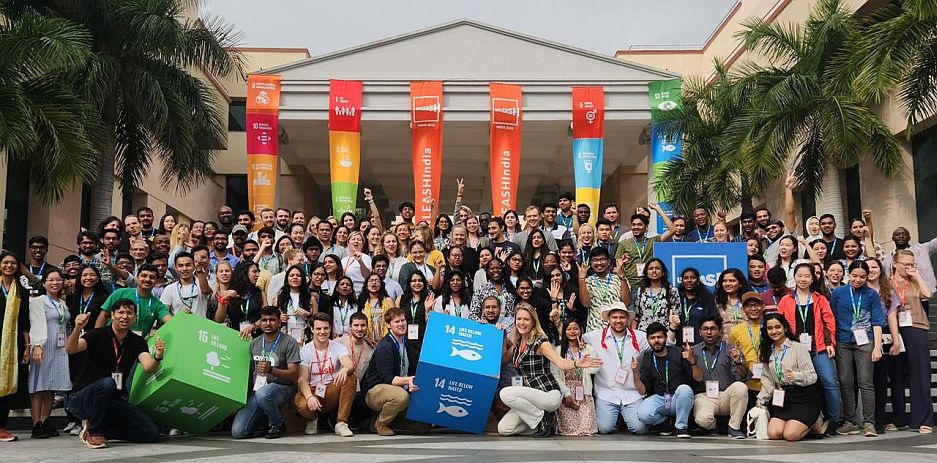
Humans often have the curiosity to solve problems. We often solve this problem by thinking about the consequences of the problem and coming up with great ideas that may become the solution. While this practice is promising, it is even more important to think critically about the issues and their root causes to have a practical theory of change that eliminates the high chances of our solutions becoming a new problem.
Andrew Abagai Ali, an MSc candidate under the African Water Resource Mobility Network (AWaRMN), advocates sustainable solutions to the United Nation’s Sustainable Development Goals (SDGs). Andrew was selected as one of the 1000 global talents to participate in the Unleash India Global Innovation Lab, Karnataka, India, from 3rd – 11th December 2022. Unleash is a worldwide initiative that connects youth to help achieve the SDGs by sharing ideas, building networks, and devising innovative solutions. Participants work together in small teams to learn to frame a problem, create new ideas, develop early-stage prototypes, and test those prototypes with potential users.
The innovation lab experience helped me develop problem-solving skills that are implementable in my research and everyday life. I learned how to effectively work with diverse talents, facilitators, and experts from other parts of the world and understood their perspectives on the problems we seek to solve. My team (MYSORE 4) worked on creating a solution to the mountain of waste at the Ghazipur landfill in Delhi, India. We developed a prototype application to help high-rise apartment residents effectively segregate their waste, educate them on the value of their waste, as well as simple hacks to waste recycling. The application will also create a value chain by connecting residents to rag-pickers and rag-pickers to recycling companies. Additionally, creating value for waste and reducing the colossal waste in landfills that harm biodiversity and human health.
My participation under SDGs 14 and 15 (Source to Sink track), coupled with the innovation process of problem framing, has helped me appreciate my current research evaluating the effect of plastic pollution on the physical habitat of freshwater ecosystems. Indeed, suppose we must mitigate the problems facing biodiversity conservation in terrestrial and aquatic ecosystems. In that case, we must start from the root cause, or else we will run in cycles.

SDGs 14 & 15 (Source to Sink) track talents, facilitators, and experts at the Innovation lab.
